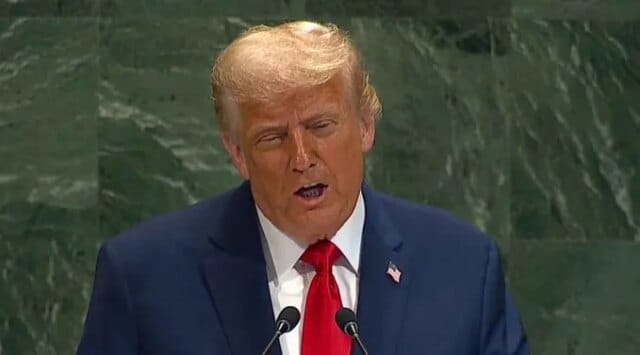Washington, Oct 30: The Trump administration has rolled back a Biden-era policy decision and made re-vetting mandatory for foreign non-immigrant visa holders seeking extension of work permits, a move that is likely to impact Indians as well.
The new rules ending the practice of automatically extending the validity of employment authorisation documents (EADs) for foreign workers in certain categories came into effect from Thursday.
In May 2022, the Biden administration had amended rules that provided for an automatic 540-day extension of EADs without any verification process once the applicants filed new applications for renewal of the employment authorisation.
The decision to grant the extension without any verification process was taken in view of 1.5 million pending requests for grants of work permits during that period, as there were apprehensions that any further delays to process them may lead to unemployment.
Non-immigrant visa holders in specific categories require the employment authorisation document, or EAD, to work temporarily in the US. An EAD is proof that a non-immigrant foreign worker is authorised to work in the country for a specific period of time.
The Department of Homeland Security on Wednesday announced scrapping the provision to automatically extend the EADs for foreigners filing renewal applications.
It said the move is aimed at proper screening and vetting of foreigners before extending the validity of their employment authorisations.
“The interim final rule does not affect EADs automatically extended before October 30,” it said.
The validity of an EAD generally ranges from one to two years, but for some categories it may be granted even for five years.
Joseph Edlow, the director of the US Citizenship and Immigration Services (USCIS), said his organisation is placing a renewed emphasis on robust screening and vetting of foreigners, “eliminating” policies of the previous administration that prioritised convenience of foreigners ahead of safety and security of Americans.
“It’s a commonsense measure to ensure appropriate vetting and screening has been completed before an alien’s employment authorisation or documentation is extended. All aliens (foreigners) must remember that working in the US is a privilege, not a right,” he said.
An applicant has to file Form I-765 to obtain an EAD, and the eligibility depends on immigration status.
A significant number of non-immigrant foreigners in various categories, including students, refugees, and dependents of employees of diplomatic missions and international organisations, are eligible to apply for EADs.
Students with F-1 non-immigrant visas seeking an Optional Practical Training (OPT) in a position directly related to their area of study.
F-1 visa holders having off-campus employment under the sponsorship of a qualifying international organisation or F-1 students seeking off-campus employment due to severe economic hardship are also eligible for EADs.
Similarly, STEM students (students with a degree in science, technology, engineering, or mathematics) are eligible to apply for EADs for 24-month extensions. Those eligible to apply for EADs under the employment-based non-immigrant categories include spouses of H-1B non-immigrant workers and spouses of L-1 intracompany transferees.
People under several other specific categories, including those from family-based non-immigrant backgrounds, are also eligible to apply for EADs. A spouse or unmarried child of a principal beneficiary of an approved employment-based immigrant programme is also eligible for EADs.
The latest move by the US immigration authorities came weeks after US President Donald Trump signed a proclamation raising the fee for H1-B visas to a staggering USD 100,000 annually.
The United States was home to about 4.8 million Indian Americans as of 2022, according to data from the US Census Bureau. Out of this, 66 per cent of Indian Americans are immigrants, while 34 per cent are US-born.








